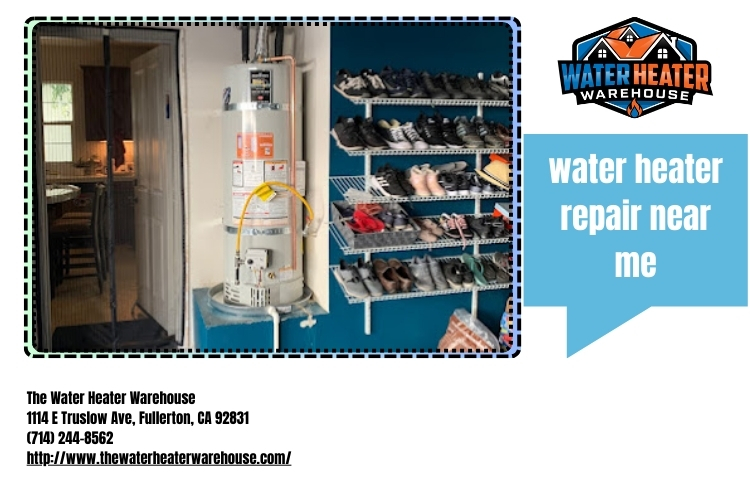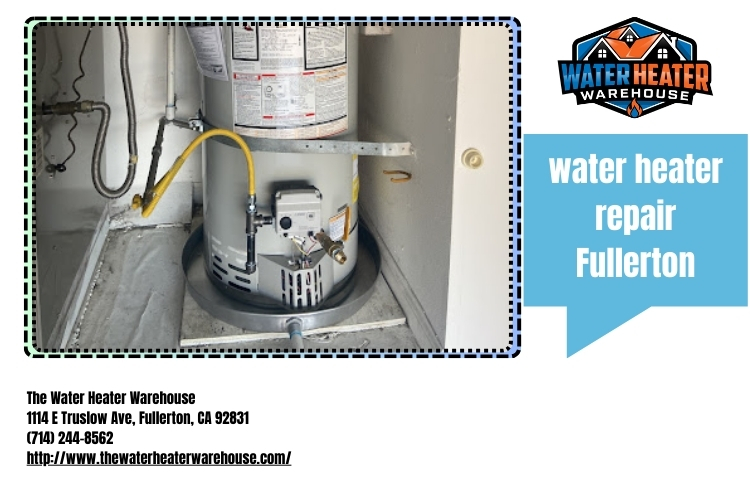In today's fast-paced world, having reliable access to hot water is essential. Whether it's for a morning shower, cleaning dishes, or laundry, the efficiency of your water heater plays a pivotal role in daily life. Understanding the different types of water heaters and their repairs can save you time, money, and frustration. In this comprehensive guide, we'll explore various types of water heaters on the market today, delve into common issues that arise with each type, and provide insights into effective repair techniques.
Understanding Different Types of Water Heaters and Their Repairs
Water heaters come in various shapes and sizes, each designed to meet specific needs. From traditional tank systems to modern tankless options, understanding these differences is crucial in selecting the right unit for your home. Additionally, knowing how to troubleshoot and repair common problems can extend the lifespan of your water heater while ensuring consistent performance.

1. Conventional Storage Water Heaters
What Are They?
Conventional storage water heaters are perhaps the most recognized type of water heating system. These units feature a large tank that stores heated water until it’s needed.
How Do They Work?
These heaters operate by using Burner Replacement Fullerton CA either gas or electricity to heat water stored inside a tank. As hot water is drawn from the tank, cold water enters at the bottom to be heated.
Common Issues and Repairs
- Insufficient Hot Water: This could be due to sediment buildup at the bottom of the tank, which can be resolved by flushing the tank. Leaks: Often caused by corrosion or faulty fittings; inspect regularly for signs of moisture.
2. Tankless Water Heaters
The Modern Solution
Tankless or on-demand water heaters are energy-efficient alternatives that heat water directly without storing it.
How They Operate
When you turn on a hot tap, cold water travels through a pipe into the unit where it is heated by either gas or electricity.
Advantages and Disadvantages
- Advantages: Energy-efficient as they only heat when required; compact size. Disadvantages: Higher initial cost; may struggle to supply multiple outlets simultaneously during peak usage times.
Common Problems
- Fluctuating Temperatures: This can occur if multiple outlets are used simultaneously; upgrading to a larger unit may be necessary. Mineral Buildup: Regular descaling can help maintain efficiency.
3. Heat Pump Water Heaters
An Eco-friendly Choice
Heat pump water heaters use electricity to move heat from one place to another instead of generating heat directly.
Working Mechanism
These units pull heat from air or ground sources and transfer it into a storage tank for heating purposes.
Pros and Cons
- Pros: High energy efficiency; environmentally friendly. Cons: Requires more space than conventional units; performance drops in colder climates.
Repair Insights
- Failure to Heat: Check for tripped circuit breakers or malfunctioning thermostats. Noise Issues: Unusual sounds might indicate mechanical failure; consult a professional for repairs.
4. Solar Water Heaters
Harnessing Solar Energy
Solar water heaters utilize solar panels to gather sunlight for heating purposes—an excellent choice for those looking to go green.
Operational Details
These systems often consist of solar collectors installed on your roof connected via pipes to a storage tank located indoors.
Benefits vs. Drawbacks
- Benefits: Reduced utility bills; renewable energy source. Drawbacks: Weather-dependent; higher installation costs upfront.
Troubleshooting Common Issues
- Low Water Temperature: This could signal insufficient sunlight exposure or system malfunctions. Leaking Panels: Inspect seals and connections regularly; timely repairs are crucial.
5. Choosing the Right Water Heater for Your Home
When selecting a new system, several factors should be taken into account:
- Size requirements based on household demand Fuel sources available (electricity, gas) Installation costs versus long-term savings
Understanding these elements will ensure you make an informed decision tailored specifically to your needs while optimizing efficiency and cost-effectiveness.
FAQs About Water Heaters
What type of water heater is best for my home?- The best type depends on your household's hot water needs, available fuel sources, and budget constraints. For instance, families with high demands may prefer tankless models while smaller households might do well with conventional tanks.
- It's recommended to flush your conventional storage heater at least once a year to remove sediment buildup that can affect efficiency.
- While minor issues like changing filters or replacing parts can often be done DIY-style, more complex problems should generally be handled by professional services like water heater repair Fullerton for safety reasons.
- Searching online with keywords like "water heater repair near me" will yield numerous local service providers equipped to handle repairs efficiently.
- Immediate action includes turning off power (for electric units) or gas supply (for gas units), shutting off the cold-water supply line leading into the unit, then contacting professionals immediately like those at The Water Heater Warehouse in Fullerton for optimal solutions.
- If you live in sunny areas with high utility costs and plan on staying put long-term, solar systems can yield significant savings over time despite higher upfront costs.
Conclusion
Understanding different types of water heaters and their repairs is integral not just for making informed purchases but also for maintaining efficient performance throughout their lifespan. By familiarizing yourself with these systems—whether they’re conventional storage tanks or innovative solar models—you’re better positioned to choose wisely according to your specific needs while also identifying potential issues early on before they escalate into costly repairs.

" width="560" height="315" frameborder="0" allowfullscreen>
Contact Us
The Water Heater Warehouse
Address: 1114 E Truslow Ave, Fullerton, CA 92831
Phone: (657) 822-0422
This guide serves as a comprehensive resource on understanding different types of water heaters along with key insights into their maintenance and repairs!
